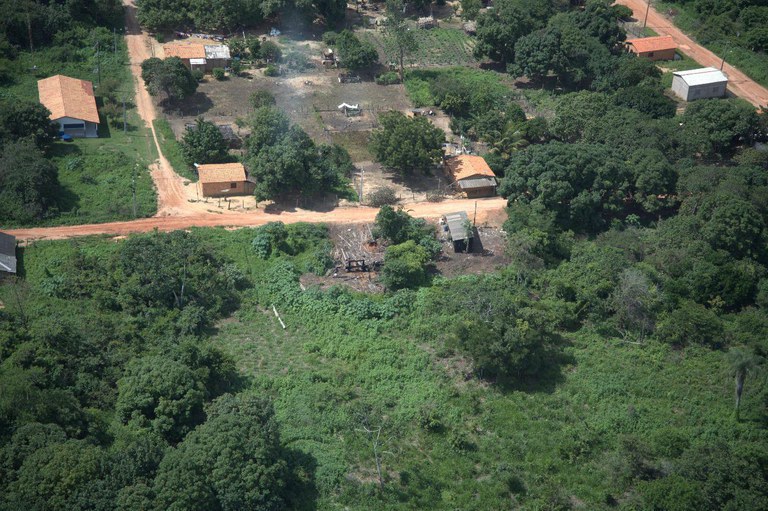Notícias
ARARIBÓIA INDIGENOUS LANDS
Disintrusion at Araribóia Indigenous Lands: how removing invaders can reduce fires, protect water cycle

In Maranhão, the Araribóia Indigenous Land was one of the most affected, with direct impacts on the indigenous peoples who depend on the forest's natural resources to survive - Credit: Secom/PR
The Araribóia Indigenous Land (Terra Indígena Araribóia) in the Brazilian state of Maranhão has been most affected by wildfires in recent years. In 2024, around 70% of the area was consumed by fire, threatening local biodiversity and worsening the region's water crisis. One of the main drivers of these fires is the practice of irregular livestock farming within the territory, where fire is illegally used to renew pastures and prepare the soil for cattle grazing. To address this, the Federal Government is conducting the Disintrusion Operation at the Araribóia Indigenous Land (Operação de Desintrusão da Terra Indígena Araribóia /OD-TIARA), a crucial measure to combat environmental degradation, preserve the forest, and protect water resources.
Forest fires not only destroy biodiversity, but also threaten the water cycle. Without vegetation cover, rainfall becomes less frequent, the soil loses its infiltration capacity, and rivers dry up more quickly. Data from the National Institute for Space Research (Instituto Nacional de Pesquisas Espaciais/INPE) indicate that fires on Indigenous lands in Brazil increased by 80% between January and August 2024, reaching 3 million hectares. In Maranhão, the Araribóia Indigenous Lands were among the most affected, resulting in direct impacts on Indigenous peoples who depend on the forest's natural resources to survive.
BURNING - The practice of burning to renew pastures is one of the main drivers of fires in the region. When native vegetation is removed to create pastures, the soil loses its ability to retain moisture and becomes more susceptible to fire. Moreover, irregular livestock farming has been associated with illegal land leasing, which further drives environmental destruction. The purpose of disintrusion is to remove invaders, eliminate illegal livestock farming and logging, and thus prevent new intentional fires.
Additionally, it plays a fundamental role in mitigating the effects of drought. Eliminating illegal activities allows the forest to regenerate, restoring its natural ability to retain moisture and protect rivers. Native vegetation acts like a sponge, absorbing rainwater and gradually releasing it into the water table, ensuring water supply even during dry periods. Moreover, preserving forest cover helps maintain the region's microclimate, reducing extreme temperatures and decreasing water evaporation.
In short, removing intruders from the Araribóia Indigenous Land is not just a territorial protection measure but also a crucial step toward mitigating forest fires and ensuring water security in the region. Combating deforestation and illegal livestock farming is essential to preserving the rainforest, safeguarding Indigenous communities, and promoting environmental balance for a sustainable future.